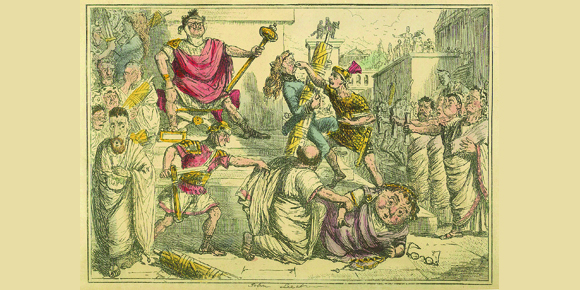Until recently, I’d never heard of “tall poppy syndrome.” Nor had I ever heard anyone called a “top poppy.” But, suddenly, both these flowery phrases have sprung up in Canadian English in regard to Sophie Grégoire Trudeau.
In a May 14, 2016, article by Neil Macdonald of CBC News, we read, “Sharon Johnston (wife of the Governor General) is not a tall poppy. Sophie Grégoire Trudeau is.”
Macdonald continued, “In the United States, people love tall poppies ... In Canada, we look at tall poppies and cluck and disapprove and frequently hope someone takes them down a peg or two.”
Another example of this usage appeared in a book review by Allan Gregg published in 2007 in the Globe and Mail. The book under review was Andrew Cohen’s, The Unfinished Canadian. Gregg wrote, “Cohen concludes that (Canadians) suffer from ‘the tall poppy syndrome,’ which finds fertile grounds in a culture of resentment toward success.”
A book on this very subject, Tall Poppyship, by Australian writer, Ian Stephens, appeared in 2001.
Tall poppy, Australian slang, is used in reference to someone with great wealth, status or success. Although the Dictionary of Slang dates tall poppy to the 20th century, Australian Slang says the phrase was heard as early as 1864.
It is probably centuries older than that. Ancient Roman historian, Titus Livius (Livy), who was born about BC 69, wrote about Tarquinius Superbus* (Tarquin), last king of the Roman Empire. Tarquin died in BC 495 after having been expelled from Rome during an uprising of senators.
He was a tyrant, and it’s in regard to his tyranny that Livy wrote, “Tarquinius Superbus silently showed how to deal with potential enemies by striking the heads off the tallest poppies in his garden with a stick.”
Tall poppy syndrome, according to Oxford, is “a perceived tendency to discredit or disparage those who have achieved wealth or prominence in public life.” This syndrome manifests itself in the urge to criticize successful people.
When tall poppy syndrome entered Modern English, it came with the belief that showy appearances don’t indicate any kind of real worth. It went still further. It brought a perverse need to cut down anyone exhibiting such an appearance.
So the rush to debase Grégoire Trudeau has much to do with her beauty and position plus the envy those evoke. As Cohen wrote, there’s a culture of resentment toward success. Sadly, this resentment is directed at the prime minister’s wife.
Being called a tall poppy is no compliment in Australia where such people are commonly viewed as, “too big for their boots.”
The expression, “cut down the tall poppies,” is an Australian colloquialism indicating spoken criticism of high achievers. And this has led to yet another idiom. Such achievers are referred to as, “victims of the tall poppy syndrome.” As long ago as 1999, Time magazine wrote that Dame Nellie Melba was, “an early victim of Australia’s tall poppy syndrome.”
Poppy entered Old English as popaeg from the Old Teutonic, papag. Ultimately, it is from the Latin, papavum (poppy).
* Superbus is pronounced with the emphasis on per.



